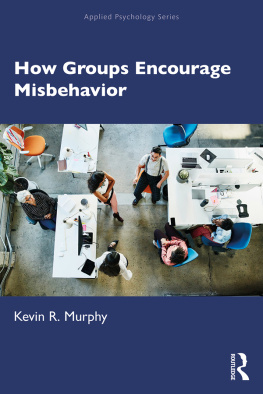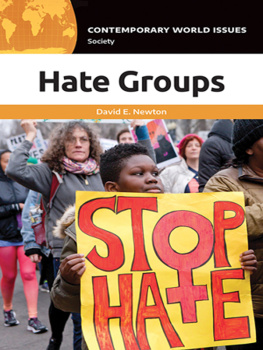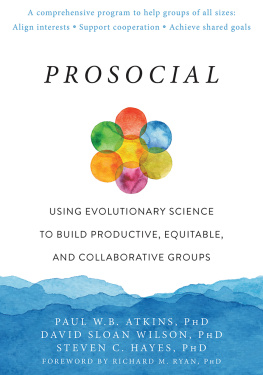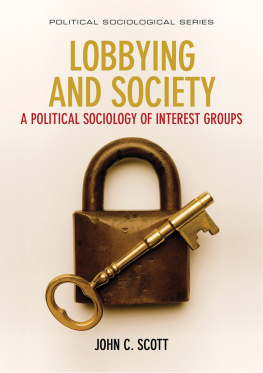How Groups Encourage Misbehavior
How Groups Encourage Misbehavior explores the psychological and social processes by which groups develop a tolerance for and even encourage misbehavior. Drawing from decades of research on social, cognitive, and organizational psychology, as well as a deep well of historical research, this book shows how commitment to groups, organizations, and movements can turn moral individuals into amoral agents.
Pulling together what have been traditionally distinct areas of study, How Groups Encourage Misbehavior provides a detailed and unified account of how good organizations go bad and how groups of all types can push otherwise honest and upright individuals to behave in ways that violate laws and social norms. This text describes how social norms, rationalization, the characteristics of formal and informal groups, attachment to groups and organizations, and the structure of organizational life can all contribute to misbehavior. Each chapter includes one or more sidebar discussions of relevant and interesting examples to illustrate the ways groups and organizations encourage and support misbehavior. The final two chapters discuss how many of these same attributes and processes can be used to encourage positive behaviors and foster recovery from dysfunctional and corrupt cultures and modes of behavior.
A valuable text for a broad range of psychology courses, How Groups Encourage Misbehavior will especially appeal to practitioners, scholars, and students interested in ethics in organizations and the intersection between social psychology and organizational behavior.
Kevin R. Murphy is Professor Emeritus at the University of Limerick. He is the author of over 190 articles and book chapters and author or editor of 11 books in areas ranging from psychometrics and statistical analysis to individual differences, performance assessment, and honesty in the workplace.
A top research psychologist provides a comprehensive analysis of why people misbehave. The discussion ranges from minor acts of incivility to major scandals in government and industry. The reader of this book will come away with an understanding of why people misbehave and what can be done to discourage it.
Paul Spector, University of South Florida, USA
So why do people so often act badlyimmorally, uncivilly, or just unrelentingly selfishly? Explanations often drift, inevitably, to the people themselves, citing their psychological drives, personality traits, character deficiencies, and the like (bad apples). These analyses, however, provide only part of the picture, for they overlook the interpersonal processes that cause people to turn from the good to the bad (bad barrels). Kevin Murphy, in his book How Groups Encourage Misbehavior, thoroughly reviews these processes, in an analysis that is both sweeping in vision but comprehensive in scope. Drawing deeply on studies of the group and organizational processes, including social influence, socialization, identity, and contagion, Professor Murphy explains the many ways people falterincluding wartime atrocities of military squads, corporate decision makers, and overly committed members of extremist groups. The book is a one-stop shop for all you need to know about the social side of misbehavior.
Donelson R. Forsyth, The University of Richmond, The Jepson School of Leadership Studies, USA
Series in Applied Psychology
Jeanette N. Cleveland
Colorado State University
Donald Truxillo
Portland State University
Edwin A. Fleishman
Founding Series Editor (19872010)
Kevin R. Murphy
Emeritus Series Editor (20102018)
Bridging both academic and applied interests, the Applied Psychology Series offers publications that emphasize state-of-the-art research and its application to important issues of human behavior in a variety of societal settings. To date, more than 50 books in various fields of applied psychology have been published in this series.
Aging and Work in the 21st Century
Edited by Kenneth S. Schultz and Gary A. Adams
Employee Retention and Turnover
Peter W. Hom, David G. Allen and Rodger W. Griffeth
Diversity Resistance in Organizations 2e
Kecia M. Thomas
Positive Psychological Science 2e
Stewart I. Donaldson, Mihaly Csikszentmihalyi and Jeanne Nakamura
Historical Perspectives in Industrial and Organizational Psychology 2e
Edited by Laura Koppes Bryan
How Groups Encourage Misbehavior
Kevin R. Murphy
For more information about this series, please visit: www.routledge.com/Applied-Psychology-Series/book-series/SAP
How Groups Encourage Misbehavior
Kevin R. Murphy

First published 2021
by Routledge
52 Vanderbilt Avenue, New York, NY 10017
and by Routledge
2 Park Square, Milton Park, Abingdon, Oxon, OX14 4RN
Routledge is an imprint of the Taylor & Francis Group, an informa business
2021 Taylor & Francis
The right of Kevin R. Murphy to be identified as author of this work has been asserted by him in accordance with sections 77 and 78 of the Copyright, Designs and Patents Act 1988.
All rights reserved. No part of this book may be reprinted or reproduced or utilised in any form or by any electronic, mechanical, or other means, now known or hereafter invented, including photocopying and recording, or in any information storage or retrieval system, without permission in writing from the publishers.
Trademark notice: Product or corporate names may be trademarks or registered trademarks, and are used only for identification and explanation without intent to infringe.
Library of Congress Cataloging-in-Publication Data
Names: Murphy, Kevin R., 1952 author.
Title: How groups encourage misbehavior / Kevin R. Murphy.
Description: New York, NY : Routledge, 2021. | Includes bibliographical references and index.
Identifiers: LCCN 2020054090 (print) | LCCN 2020054091 (ebook) | ISBN 9780367340278 (hardback) | ISBN 9780367340292 (paperback) | ISBN 9780429323515 (ebook)
Subjects: LCSH: Social groupsPsychological aspects. | Social psychology. | Social norms.
Classification: LCC HM716 .M85 2021 (print) | LCC HM716 (ebook) | DDC 305dc23
LC record available at https://lccn.loc.gov/2020054090
LC ebook record available at https://lccn.loc.gov/2020054091
ISBN: 978-0-367-34027-8 (hbk)
ISBN: 978-0-367-34029-2 (pbk)
ISBN: 978-0-429-32351-5 (ebk)
Typeset in Bembo
by Apex CoVantage, LLC
Brief Contents
Jeanette Cleveland and Donald Truxillo
part i
The Psychology of Misbehavior
part ii
The Workplace as a Focal Point for Understanding Misbehavior
part iii
Positive Behavior in Organizations
Contents
Jeanette Cleveland and Donald Truxillo
part i
The Psychology of Misbehavior
part ii
The Workplace as a Focal Point for Understanding Misbehavior
part iii
Positive Behavior in Organizations
Guide
Bad behavior has been part of the human experience for as long as there have been human beings. We are all aware of examples of bad behavior in politics, government, sports, and business. Bad behavior manifests in myriad waysbribery, deception, theft, cheating, and aggression, to name a few. And bad behavior results in the suffering of a range of victims, including coworkers, consumers, the public, and society at large.













